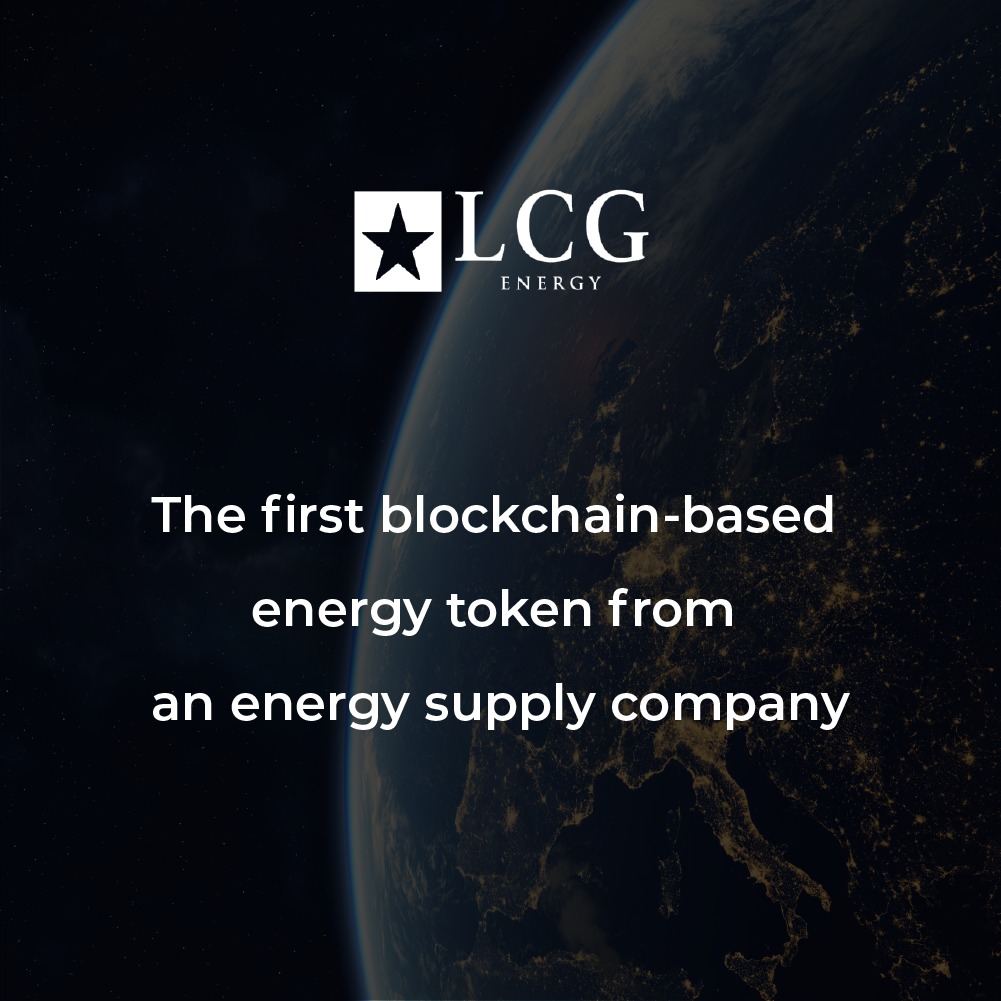2018 was incredibly productive for the blockchain industry, with a record sum of funds raised – over $13 billion – through 2000 new projects launching their token sales. More than a dozen of those centred on the energy industry. How is LCG different?
A well-established business
One of the main issues that cause so many blockchain projects to fail in their first year of operation is an absence of a customer base and partner network. All too often, startup teams launch their token sale with little more than a good idea and a website in place. Needless to say, the trouble begins as soon as the sale is over: It turns out that attracting first clients while having only a bare outline of a product is hard. Serious businesses are also wary of concluding agreements with brand-new startups.
In this context, LCG Energy stands out among its competition. LCG is a well-known energy reseller and contractor licensed by the German and Austrian Federal Network Agencies for Electricity, Gas, Telecommunications, Post and Railway that serves over 50,000 clients in Germany, Austria, the Netherlands, and other European countries. The partner network of LCG comprises over 1100 businesses. The company’s revenue exceeded $20 million in 2018 and is expected to increase to $90 million in 2019 thanks to the establishment of a number of important partnerships.
Saving money with smart meters
LCG Energy does not just provide electricity: As an energy contractor, it also installs smart meters – innovative meters that gather data on electricity consumption and transmits it digitally to the supplier, ensuring correct billing. This means that the power company does not have to send employees to customers’ homes every month to take readings, and the resulting savings can be shared between the company and its clients.
Yet another advantage of smart meters is that they display real-time energy use and price. Consumers can analyze their energy habits and discover new ways of reducing expenses: for example, by eliminating the so-called “creeping current,” turning off standby devices, and so on. It’s even possible to top up a smart meter the same way you would a pay-as-you-go phone. Practice shows that by installing a smart meter, the average household can easily save around 200 euros a year, while a small business can save around 1500 euros.
LCG tokens: the secret to lower prices
Any blockchain-powered project in the energy field, no matter how revolutionary its idea, has to solve the same problem: how to beat the prices offered by traditional energy companies. Tokenization can remove unnecessary middlemen, but it’s still subject to the price volatility in the energy market. In this context, it’s crucial that LCG Energy has the necessary expertise in market forecasting and analysis, as well as a wide network of partnerships, to be able to buy energy at the best possible prices and from sources that offer the best ROI. The company will allocate a large portion of the funds it collects during the token sale to these endeavours.
As a result of this scheme, clients of the LCG Energy network will save money on their electricity payments thanks to several factors:
- LCG’s lower prices per kWh
- The use of smart meters
- The elimination of middlemen
- Minimized fees via token payments
Investing in a sustainable future
Apart from buying power to back its tokens, LCG will use the raised funds to finance a number of highly promising energy projects, in particular in the field of renewable energy. The company will select only those that can generate a high ROI and pass a strict due diligence procedure. Members of the LCG ecosystem – that is, all LCG token holders – will have the opportunity to invest in the selected projects – thus, even users who reside outside of the company’s coverage area can still benefit.
It’s important to note that all transactions in the network will be carried out using smart contracts – self-executing code that will directly connect ecosystem members. Such connections go beyond simple bill payments or data exchanges between a consumer and the energy company. Using special sources of data called oracles, blockchain-enabled smart meters can display the current wholesale market price and use these oracles to calculate the amount due. On the other hand, renewable energy companies can issue a digital certificate for each large unit of energy they produce and track its movement through the network to prevent fraud.
Blockchain has a bright future in the energy industry, both in terms of promoting competition and reducing costs as well as in terms of energy trading. LCG Energy, with its large customer base and well-developed partner network, occupies a particularly advantageous position in this market. To learn more about the upcoming LCG token sale, visit https://lcg-group.de/
Disclosure/Disclaimer: This article is paid for and produced by a third-party source and should not be viewed as an endorsement by ZyCrypto. Readers are urged to do their own research before getting involved with the company, goods and/or services mentioned in the above article.







